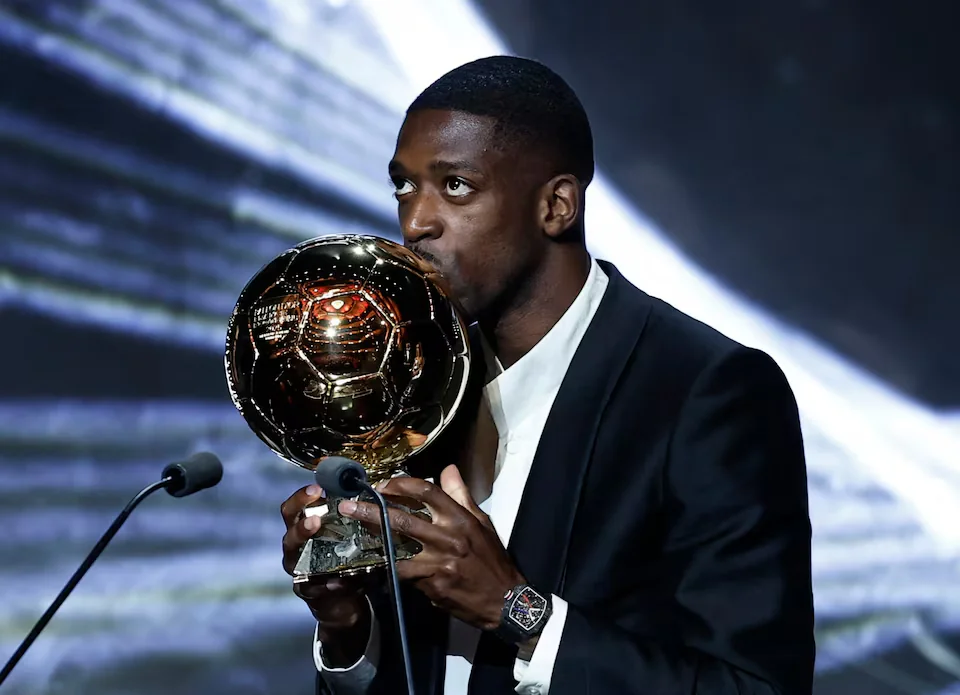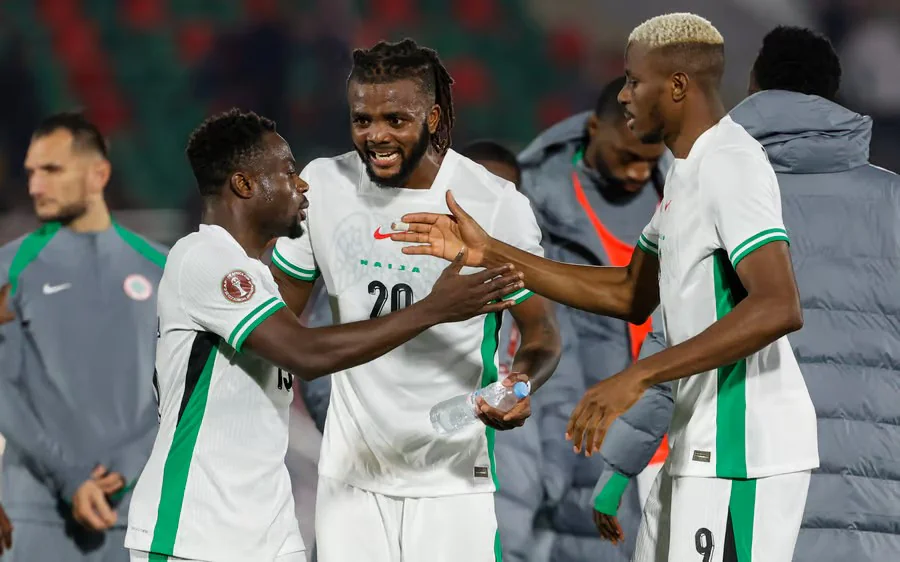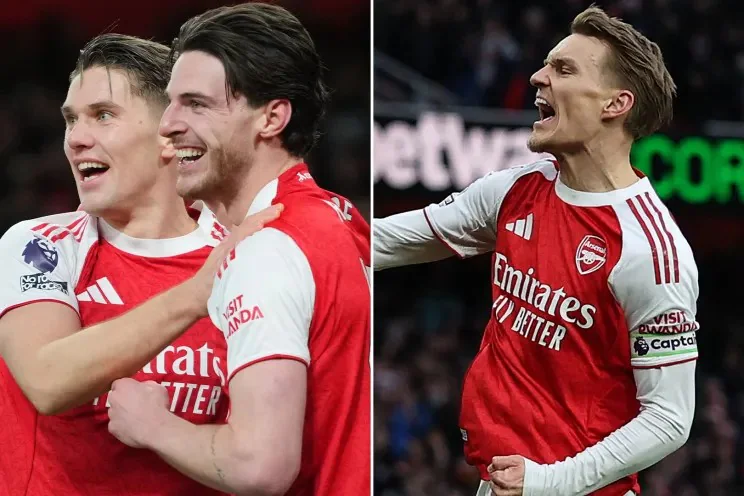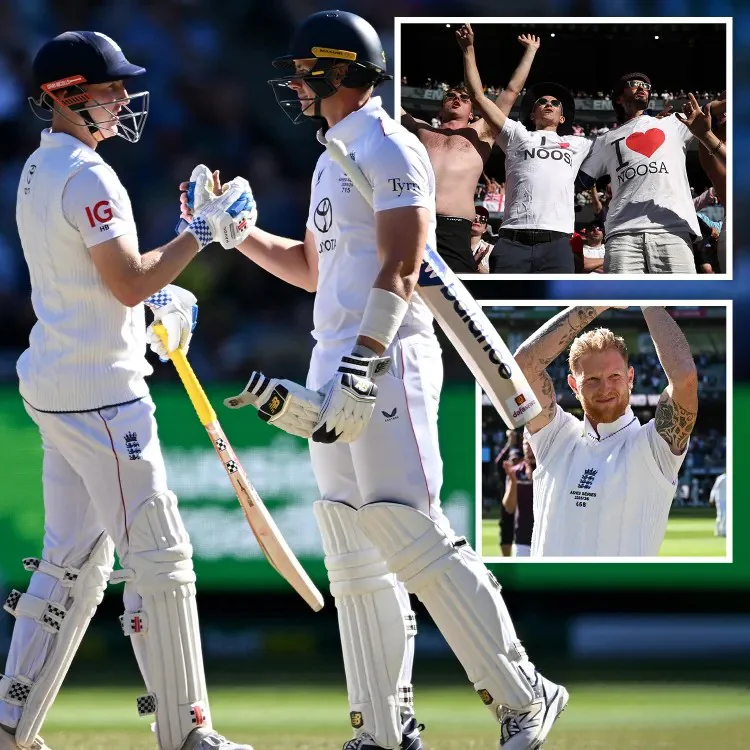
Paris Saint-Germain’s Ousmane Dembele has officially entered football’s hall of legends after being crowned the 2025 Ballon d’Or winner in Paris. The French forward’s triumph not only cements his personal redemption story but also highlights PSG’s long-awaited rise to European glory.
The Defining Moment
One unforgettable scene summed up Dembele’s transformation — his piercing glare at Inter Milan goalkeeper Yann Sommer during PSG’s Champions League final in Munich. That moment, followed by a commanding performance, symbolized the determination that carried PSG to their first-ever Champions League title in a 5-0 rout.
Dembele Under Luis Enrique
Since joining from Barcelona in 2023, Dembele has evolved under Luis Enrique’s system. Once seen as an injury-prone, inconsistent winger, he has become a complete forward with freedom to roam and dictate attacks.
“The coach gives me a lot of freedom on the pitch,” Dembele said. “I’m not forced to remain at the point of the attack like a number nine. I just try to create space and cause chaos in midfield.”
His numbers speak volumes: 35 goals and 14 assists in 53 matches last season, including two assists in the Champions League final. He also claimed the Ligue 1 Golden Boot with 21 goals.
Luis Enrique praised his star man:
“Ousmane can become the player he wants to be. If he remains confident in front of goal, he has no equal. He can score in any position, even with his head. He’s a phenomenal player.”
More Than Goals
Dembele’s defensive work has become just as crucial. According to UEFA stats, he produced more sprints than any PSG player in the Champions League final, leading the press that suffocated Inter’s defense.
Luis Enrique added:
“I sincerely believe he deserves the Ballon d’Or. Not just for the titles or the goals, but for his pressing. This is how you lead a team.”
From fragile talent to complete leader, Dembele is now the face of PSG’s dominance — and France’s newest Ballon d’Or icon.
Full List of Ballon d’Or Winners (Men & Women)
Men’s Ballon d’Or (1956–2025)
1956 – Stanley Matthews (England)
1957 – Alfredo Di Stéfano (Spain)
1958 – Raymond Kopa (France)
1959 – Alfredo Di Stéfano (Spain)
1960 – Luis Suárez (Spain)
1961 – Omar Sivori (Italy)
1962 – Josef Masopust (Czechoslovakia)
1963 – Lev Yashin (Soviet Union)
1964 – Denis Law (Scotland)
1965 – Eusébio (Portugal)
1966 – Bobby Charlton (England)
1967 – Flórián Albert (Hungary)
1968 – George Best (Northern Ireland)
1969 – Gianni Rivera (Italy)
1970 – Gerd Müller (West Germany)
1971 – Johan Cruyff (Netherlands)
1972 – Franz Beckenbauer (West Germany)
1973 – Johan Cruyff (Netherlands)
1974 – Johan Cruyff (Netherlands)
1975 – Oleg Blokhin (Soviet Union)
1976 – Franz Beckenbauer (West Germany)
1977 – Allan Simonsen (Denmark)
1978 – Kevin Keegan (England)
1979 – Kevin Keegan (England)
1980 – Karl-Heinz Rummenigge (West Germany)
1981 – Karl-Heinz Rummenigge (West Germany)
1982 – Paolo Rossi (Italy)
1983 – Michel Platini (France)
1984 – Michel Platini (France)
1985 – Michel Platini (France)
1986 – Igor Belanov (Soviet Union)
1987 – Ruud Gullit (Netherlands)
1988 – Marco van Basten (Netherlands)
1989 – Marco van Basten (Netherlands)
1990 – Lothar Matthäus (West Germany)
1991 – Jean-Pierre Papin (France)
1992 – Marco van Basten (Netherlands)
1993 – Roberto Baggio (Italy)
1994 – Hristo Stoichkov (Bulgaria)
1995 – George Weah (Liberia)
1996 – Matthias Sammer (Germany)
1997 – Ronaldo Nazário (Brazil)
1998 – Zinedine Zidane (France)
1999 – Rivaldo (Brazil)
2000 – Luís Figo (Portugal)
2001 – Michael Owen (England)
2002 – Ronaldo Nazário (Brazil)
2003 – Pavel Nedvěd (Czech Republic)
2004 – Andriy Shevchenko (Ukraine)
2005 – Ronaldinho (Brazil)
2006 – Fabio Cannavaro (Italy)
2007 – Kaká (Brazil)
2008 – Cristiano Ronaldo (Portugal)
2009 – Lionel Messi (Argentina)
2010 – Lionel Messi (Argentina)
2011 – Lionel Messi (Argentina)
2012 – Lionel Messi (Argentina)
2013 – Cristiano Ronaldo (Portugal)
2014 – Cristiano Ronaldo (Portugal)
2015 – Lionel Messi (Argentina)
2016 – Cristiano Ronaldo (Portugal)
2017 – Cristiano Ronaldo (Portugal)
2018 – Luka Modrić (Croatia)
2019 – Lionel Messi (Argentina)
2020 – Not awarded (COVID-19)
2021 – Lionel Messi (Argentina)
2022 – Karim Benzema (France)
2023 – Lionel Messi (Argentina)
2024 – Erling Haaland (Norway)
2025 – Ousmane Dembele (France)
Women’s Ballon d’Or (2018–2025)
2018 – Ada Hegerberg (Norway, Lyon)
2019 – Megan Rapinoe (USA, Reign FC)
2020 – Not awarded (COVID-19)
2021 – Alexia Putellas (Spain, Barcelona)
2022 – Alexia Putellas (Spain, Barcelona)
2023 – Aitana Bonmatí (Spain, Barcelona)
2024 – Aitana Bonmatí (Spain, Barcelona)
2025 – Aitana Bonmatí (Spain, Barcelona)



















